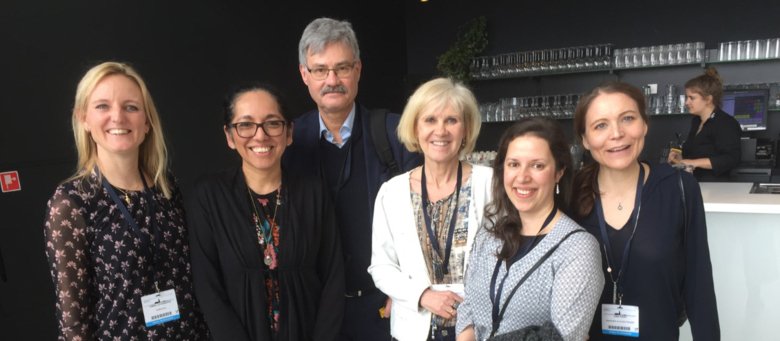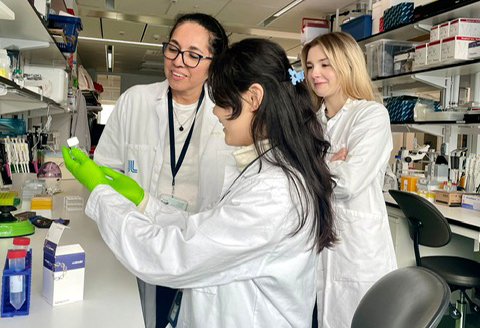The forgotten and hidden national disease

Meet Maria Bradley, research group leader at the Division of Dermatology and Venereology at the Department of Medicine, Solna.
In my reserach group, we study different aspects of atopic eczema. It is a disease that affects 2 million Swedes and is often referred to as the “forgotten and hidden” national disease. This, because it is so common as well as the fact that it is rarely mentioned. Despite the fact that our patients have a drastically lowered life quality with itching and sleep deprivation, many people dismiss the desease with the belief that “some eczema can’t be that bad”.

In Team Isabel Tapia, we conduct molecular genetic research and try to understand the genetic background of atopic eczema. Atopic eczema is a complex desease caused by genetic “spelling errors” in one or more genes and in interaction with environmental factors. Many of the polymorphism or “spelling errors” that are associated with complex diseases are located between genes in non-coding DNA regions. They can affect the gene expression, but it can be diffictult to identify which target genes (candidate genes) they interact with. To identify these candidate genes we have in collaboration with researcher Pelin Sahlén at KTH used the Capture Hi-C method, which allows regions of the genome that are active simultaneously (and therefore interact with each other) to be identified, despite the fact that they are located far apart. This has been an important puzzle piece for us and we have identified several new candidare genes. The findings are important for further study of these complex diseases, in order to understand the disease mechanism, and to open up new treatment strategies and preventive measures.
We are also researching and trying to understand how the genetic background differs in different populations. We have shown that mutations in the gene for filaggrin (which is detected in almost half of those with severe atopic eczema in a European population) do not exist at all in eczema patients in Africa. Through several international collaborations we continue to work to identify global genetic differences in patients with atopic eczema.
In Team Emma Johansson, we use epidemiological methods to investigate how new drugs for atopic eczema work in practice. There are many new biological therapies och small synthetic molecules (i.g. JAK inhibitors) for atopic eczema. We have created a nation-wide quality register, SwedAD where eczema patients on systemic treatments are registered. With the help of SwedAD and other Swedish health data registers, we try to answer many clinical questions such as how effective the systemic treatments we use are and how do they differ. With our registry we also study the risk of known, or new side effects. We are also trying to identify new biomarkers and investigate previously known ones (such as filaggrin mutations) in order to provide a more personalized treatment. Further more, we study co-morbidities between atopic eczema and cardiovascular diseases, malignancies and autoimmune diseases. Here too, we have several international collaborations and continue to work to identify global genetic differences in patients with atopic eczema through data registers.
For me, it is very exciting to be able to offer my patients much better and more individualized treatment than before. And to be a part of this era where the pace of knowledge acquisition of atopic eczema increases exponentially thanks to the fact that we now can use molecular genetics ans epidemiological methods.
